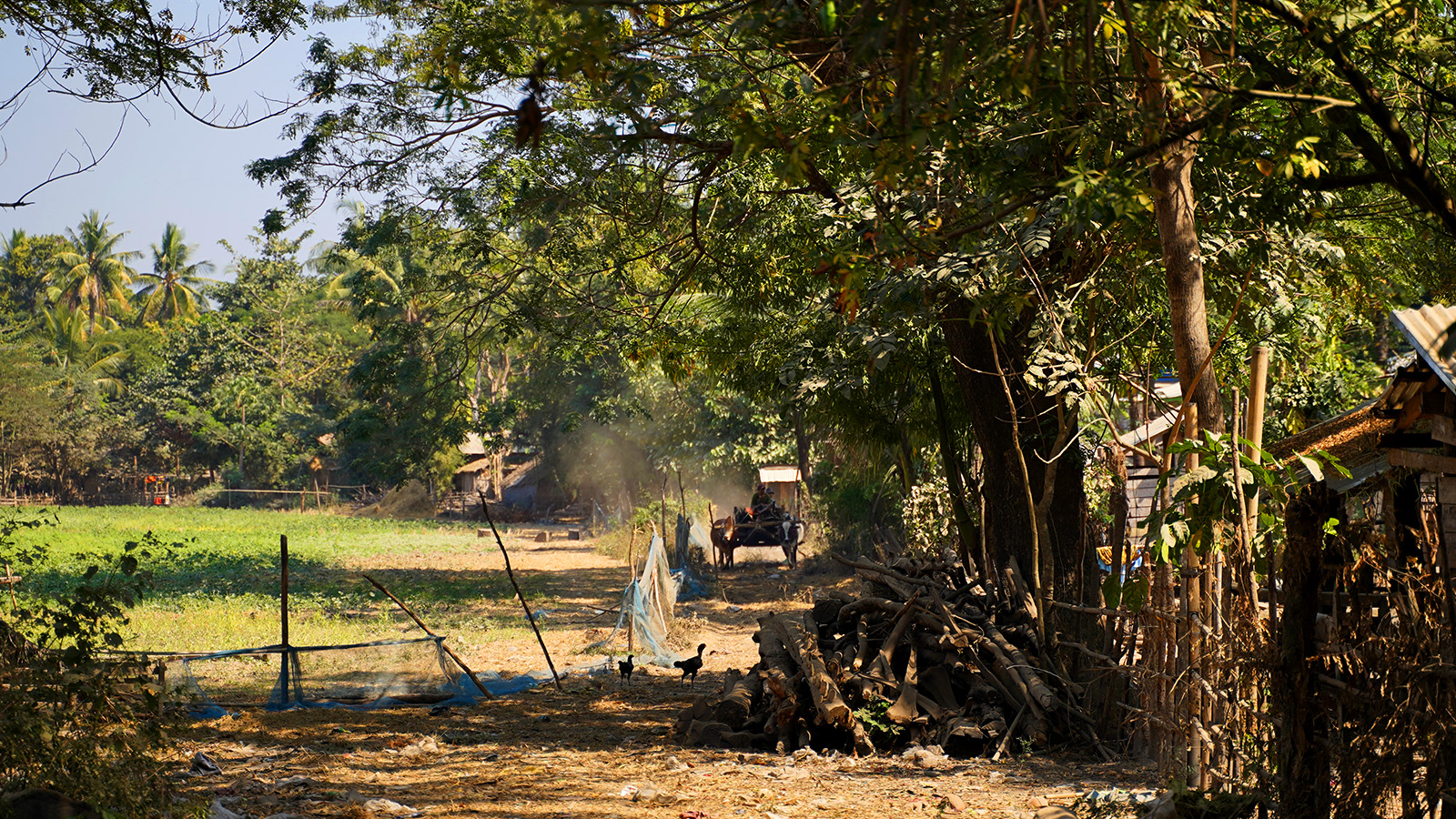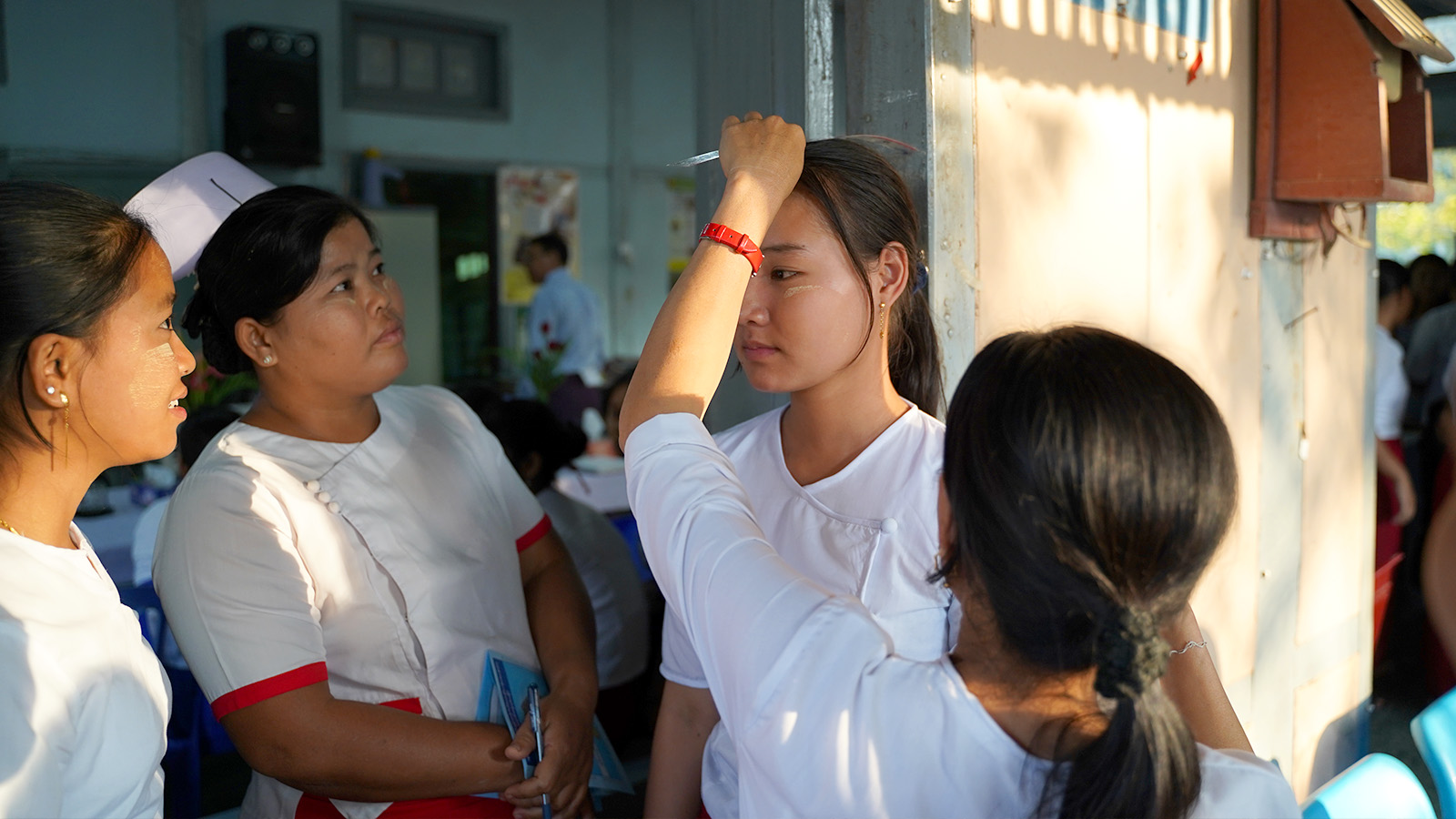
Empowering Ethnic Minorities to Improve Maternal and Newborn Health in Myanmar
For families from ethnic minorities, many of whom live in rural areas, the barriers are even higher. Development has been slower to reach these communities than other parts of the country, with a corresponding impact on health infrastructure. A child under five living in a rural area is nearly twice as likely to die as a child living in an urban setting.3
Takeda’s Global CSR Program, in partnership with Save the Children, is helping to change the picture for minority women and children in Myanmar by increasing access to quality maternal and newborn health care. They do this by supporting health workers and enhancing community engagement in health care services in remote areas. Through the partnership, better support for maternal and newborn emergencies is now available in more than 100 villages.
Harnessing the Power of Community

In January 2020, the company’s Employee Participation Program (EPP) brought a small group of Takeda employees down unpaved roads to visit a cornerstone of the partnerships, and a spark of hope for the region: Kyaukki’s new village health committees that have been formed through the project.
The Kyaukkyi village health committees harness the power of community members themselves, offering support for community health activities and providing an emergency referral program for mothers and newborns in collaboration with midwives. The members quickly become valued resources for families throughout the village.
For Rafael Fortes (Growth and Emerging Markets Business Unit), this was “the most striking moment of the trip. The village health committee ... told us that the project is making a real difference to their lives and the lives of people in the community.”
Building Long-Lasting Solutions for Mothers and Midwives

Not only do the mothers receive care themselves, they also learn how to care for their newborns, including good nutrition during the first weeks of life. These early interventions set mothers and their babies on a healthy life course, and that impact has a multiplier effect for health workers. Auxiliary midwives, trained at health centers, can give back to the community by becoming members of the village health committee and sharing their newly acquired knowledge and skills. “It’s a really ingenious way to affect change,” says Jill Livengood (Global Vaccines Business Unit). “The health centers will be used by the nearby villages after the project funding ends, hopefully for many years.”
“At work we develop medicines and vaccines, but through our Global CSR Program, we’re making a meaningful difference to communities at the local level.”
Meeting the Mothers Using Their Newfound Knowledge to Bring Better Health
The Takeda Global CSR Program’s support for high impact programs in developing and emerging countries aligns with our corporate values — long-term commitments, lasting, sustainable change, and effective, enduring partnerships. Similarly, the EPP invites Takeda employees to bring their own personal values to the table. Each year, all employees are given the chance to decide how CSR funding will be used through a company-wide employee voting system. The EPP helps remind employees of the impact they are bringing to local communities.
Sumito Soichi (Japan Pharma Business Unit) was particularly inspired during the trip when he and his colleagues met with mothers who had received support from the village health committee’s emergency referral program. “I was inspired by how motivated the auxiliary midwives, mothers, and dedicated staff at Save the Children all are to bring better health to the community, and I saw that our support successfully reaches people.”
“Only three of us attended this program, but I want as many people as possible to see [it] with their own eyes.”
“I knew nothing about neonatal care,” one of the mothers told Takeda employees, “or information on when I needed to go to the hospital. Takeda and Save the Children’s program gave me knowledge, and I will share the information with my neighbors.”
On the topic of why Takeda’s support is unique, Dr. Ei Mon Soe (Save the Children Myanmar’s Head of Health), reflected “the Takeda project with Save the Children empowers members of the community to take responsibility for their own health care with reduced financial hardship. I think that is crucial, and also the main purpose of the project.”
1 UNICEF. Myanmar: key demographic indicators. Available at: https://data.unicef.org/country/mmr/.
2 World Health Organization. Maternal mortality in 2000–2017, Myanmar. Available at: https://www.who.int/gho/maternal_health/countries/mmr.pdf?ua=1
3 UNICEF. Myanmar: Maternal, newborn and child health. Available at: https://www.unicef.org/myanmar/health-and-nutrition/maternal-new-born-and-child-health